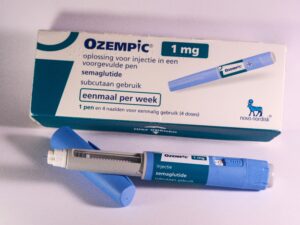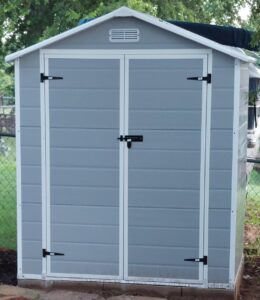A football team has members whose specific functions are important to execute a play. Every player must precisely interact with other team members like a fine-tuned machine. Failure to do so can result in chaos. So it is with the complex human immune system.
A new study published on September 16th in the journal “Cell” demonstrates that people who have the most severe cases of COVID-19 have an “uncoordinated” immune response.
The study’s results help explain the progression of the disease and help doctors and researchers to best utilize available therapies and to create the safest and most effective vaccines.
Donna Farber, an immunologist at Columbia University who was not involved in the research, stated, “This is probably the most comprehensive analysis of virus-specific immunity in people who either had COVID or are acutely infected.”
The new study concentrates on the three most important components of the adaptive immune system, which are the secondary defenses initiated after the primary immune system immune detects invading pathogens.
According to immunologist Shane Crotty of the La Jolla Institute for Immunology, who led the study with co-worker Alessandro Sette, “In general, if you had a response with all three, you tended to do well. People ended up running into trouble when they didn’t have a coordinated adaptive immune response.”
When the body discovers an unknown virus, non-specific immune cells, which attack any invader, respond immediately. They also release chemical couriers called cytokines to alert other types of immune cells. This “adaptive” response targets the specific pathogen then increases during the course of the illness.
One adaptive “arm” is comprised of antibodies that attach to and “neutralize” the virus. If the antibodies fail, the second arm of the adaptive immune system is comprised of “killer” T cells, who act as a second line of defense, recognizing and destroying infected cells. The third adaptive immune system arm is made up of helper T cells, which synchronize the production of antibodies, killer T cells, and the rest of the immune system.
Crotty, Sette, and the research team examined blood samples of 24 COVID-19 cases that ranged from mild to those that ended in death. The scientists compared the immune responses from the 24 cases with those of 26 recovered patients, and with a control group, composed of 65 people who had never been exposed to the virus. The age of participants ranged from 20 to 86-years-old.
Although this was a preliminary study involving a small number of people, there were some important findings. Researchers discovered that neutralizing antibody levels did not correspond with the severity of the disease. Patients who had the worst cases of COVID-19 had low levels of helper and killer T cells. “It looks like T cells play a more important role than antibodies during natural infection,” Crotty said.
Blood that was taken from the 10 participants who had an active COVID-19 infection, aged 65 or older, demonstrated that they were much more likely than infected younger people to have uncoordinated responses between the three components of the immune system.
This age group also had fewer “naïve” T cells that can recognize novel pathogens, then develop into mature killer and helper cells, capable of launching a coordinated response to the SARS-CoV-2 virus.
According to Crotty, this study may shed light on the development of cytokine storms, which contribute to severe cases of COVID-19. “If you kick off an innate and adaptive immune response pretty quickly, you’re going to be fine. But if there’s a deficit of the adaptive arm’s T cells, the antibody response and cytokines by themselves often have trouble containing SARS-CoV-2, allowing the virus to grow to high levels. The innate system responds by pumping out still more cytokines. Maybe the virus gets so far ahead in those people that it’s too late for the adaptive immune system to catch up.”
Corticosteroids, such as dexamethasone, which reduces the immune response, have the potential to save lives in severe cases. However, Crotty cautions against the early use of steroids. “You could really shoot yourself in the foot because this might be somebody whose adaptive immune response is just getting going.”
Farber, who studies lung and airway immunity, said, “You can assess patients based on their adaptive immunity profile; this is really important.” But Farber warns that the blood may not give a clear picture of the immune responses in respiratory tissues such as the lungs. “I don’t know if monitoring the blood is going to tell us what is going to prevent a mild case from becoming severe.”
Julie McElrath, Director of the Vaccine and Infectious Disease Division of the Fred Hutchinson Cancer Research Center, said that these “interesting findings” may guide COVID-19 vaccine makers to concentrate more on T cell responses. “Eliciting both antibody and T cell responses with vaccines is likely an important step to achieving efficacy against severe COVID-19.”
McElrath pointed out that a number of the vaccine efficacy trials aren’t analyzing T cell levels. She further stated that “teaching” an immune system to invoke substantial T cell responses against SARS-CoV-2 may require using more molecular components of the virus in a vaccine besides the spike protein.
Crotty said that measuring T cell response is problematic, but if current experimental vaccines prove to be less effective, there will be massive efforts to measure and increase T cell immune responses.
“If you can have a vaccine that has fantastic neutralizing antibodies and can sustain them, that really will be the big winner, but if the virus slips through, our data indicate that these T cell responses are probably really important, and probably even more important the older you are.”










